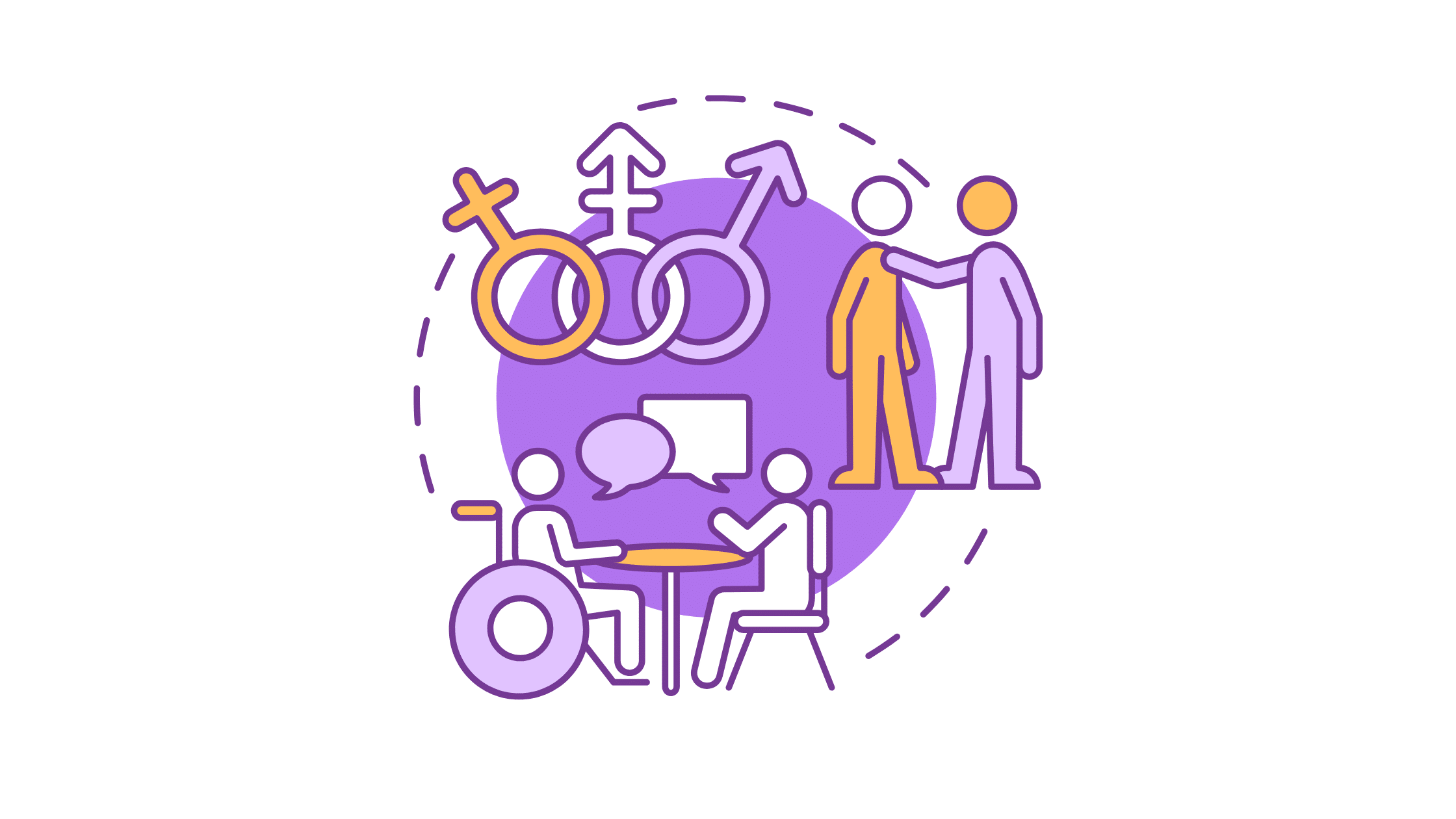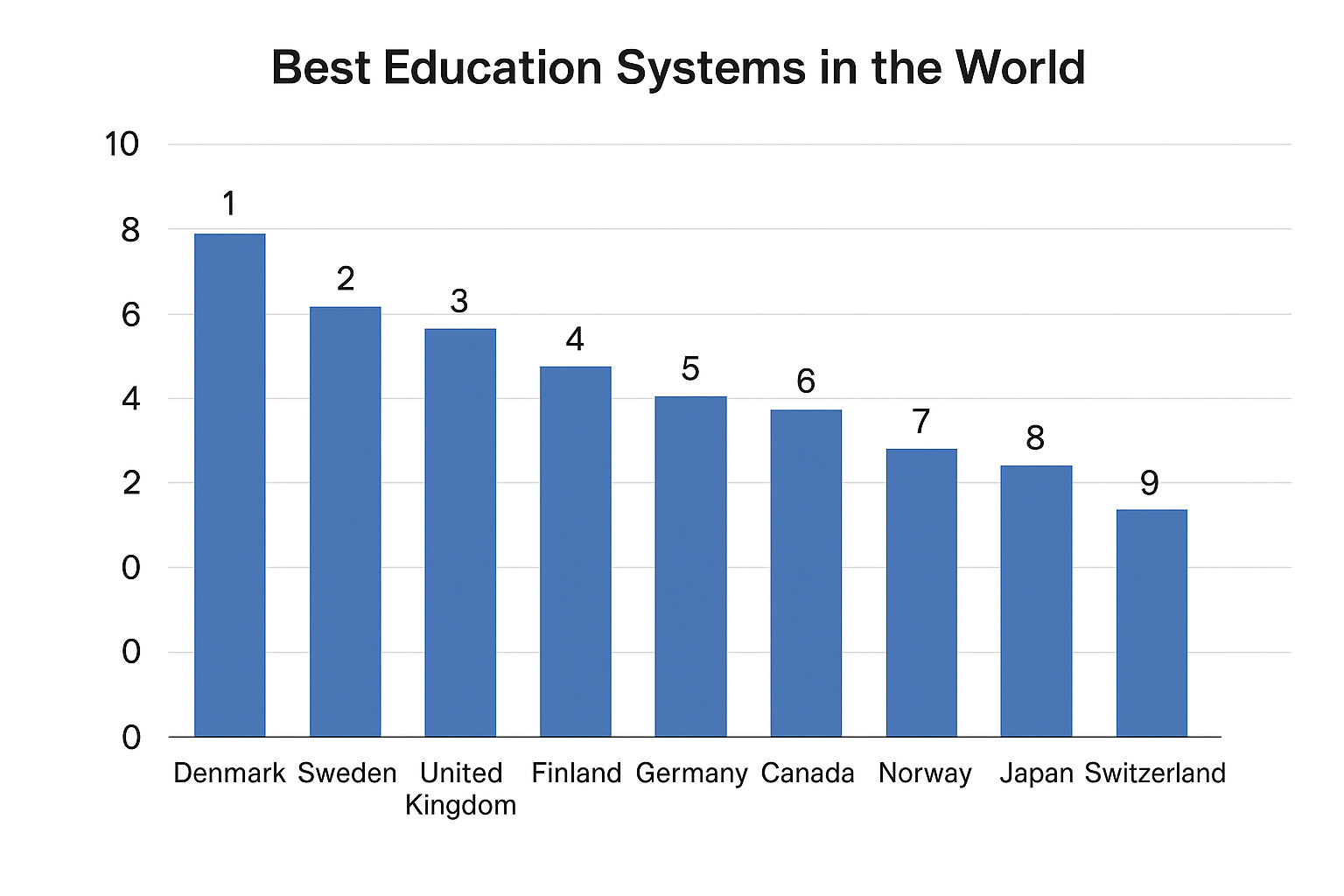
How to Learn the Russian Language
Quick Answer: To learn the Russian language effectively as a beginner, start by mastering the Cyrillic alphabet, then build a strong foundation in essential vocabulary, grammar rules, and pronunciation. Consistent practice with language apps, flashcards, native Russian content (like songs, movies, and news), and speaking with native speakers will accelerate your fluency. This guide provides a step-by-step learning plan, useful resources, and proven tips to help you progress from beginner to conversational—and eventually fluent—in Russian.
Introduction
Learning the Russian language may seem daunting, but with the right approach, it can be an exciting and rewarding journey. Whether you want to learn Russian language for travel, business, or academic purposes, the key is consistency, practice, and using the right resources. This guide will take you through effective methods to master Russian language, from understanding its alphabet to developing fluency in speaking, reading, and writing.
1. Understanding the Cyrillic Alphabet
Before diving into Russian vocabulary and grammar, it's essential to learn the Cyrillic alphabet, which consists of 33 letters. Some letters resemble English letters but sound different, while others are entirely unique.

How to Master the Russian Alphabet Quickly:
- Break it into groups – Start with familiar letters, then move on to new ones.
- Use mnemonics – Associate letters with images or sounds.
- Practice writing – Rewriting letters helps in memorization.
- Use apps like Duolingo or Memrise to reinforce learning through gamified exercises.
Once you recognize and pronounce the letters correctly, reading Russian texts will become much easier.
2. Learning Essential Russian Phrases and Vocabulary
To start speaking Russian, focus on high-frequency words and common phrases used in daily conversations.
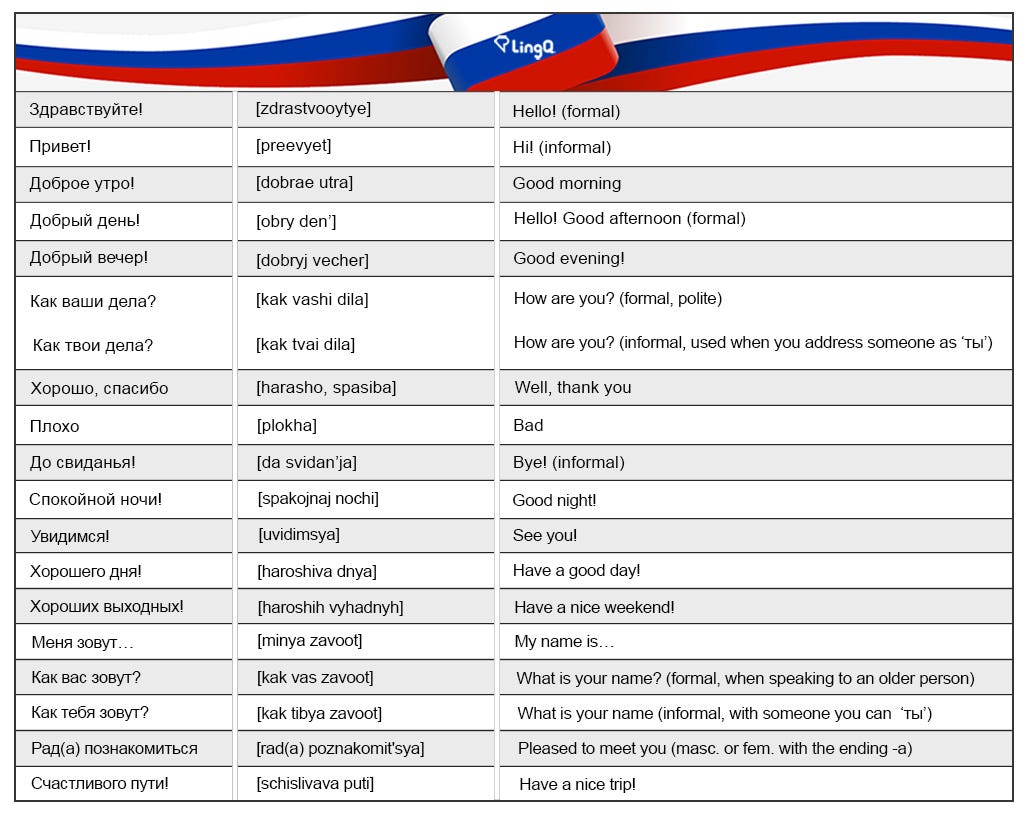
Basic Russian Phrases for Beginners:
- Здравствуйте (Zdravstvuyte) – Hello (formal)
- Привет (Privyet) – Hi (informal)
- Спасибо (Spasibo) – Thank you
- Извините (Izvinite) – Excuse me / Sorry
- Как дела? (Kak dela?) – How are you?
- Меня зовут… (Menya zovut…) – My name is…
- Я не понимаю (Ya ne ponimayu) – I don’t understand
💡 Tip: Use flashcards and spaced repetition apps like Anki to reinforce vocabulary.
3. Mastering Russian Grammar Basics
Russian grammar is complex but follows clear rules. Understanding key concepts will significantly improve your ability to form sentences.
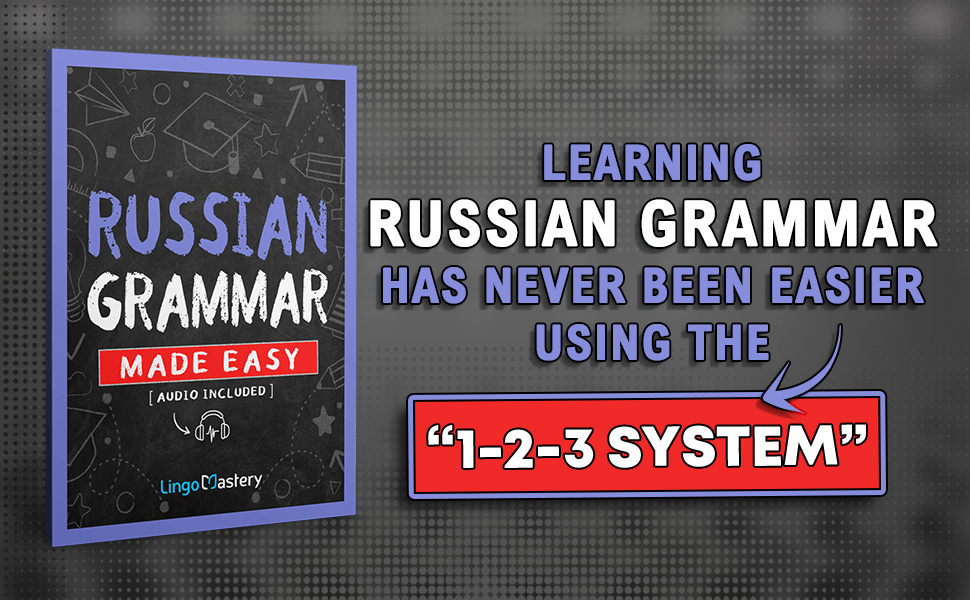
Key Grammar Points to Focus On:
- Cases – Russian language has six cases (Nominative, Accusative, Genitive, Dative, Instrumental, and Prepositional). Each case affects how nouns and adjectives are used in sentences.
- Verb Conjugation – Russian verbs change based on tense and subject. Learning common verb conjugation patterns helps in sentence formation.
- Gender of Nouns – Russian nouns are either masculine, feminine, or neuter. This affects adjectives and verb conjugations.
- Word Order – Russian is flexible with word order but typically follows a Subject-Verb-Object (SVO) structure.
4. Developing Listening and Speaking Skills
Listening to native Russian speakers helps improve pronunciation, comprehension, and fluency.
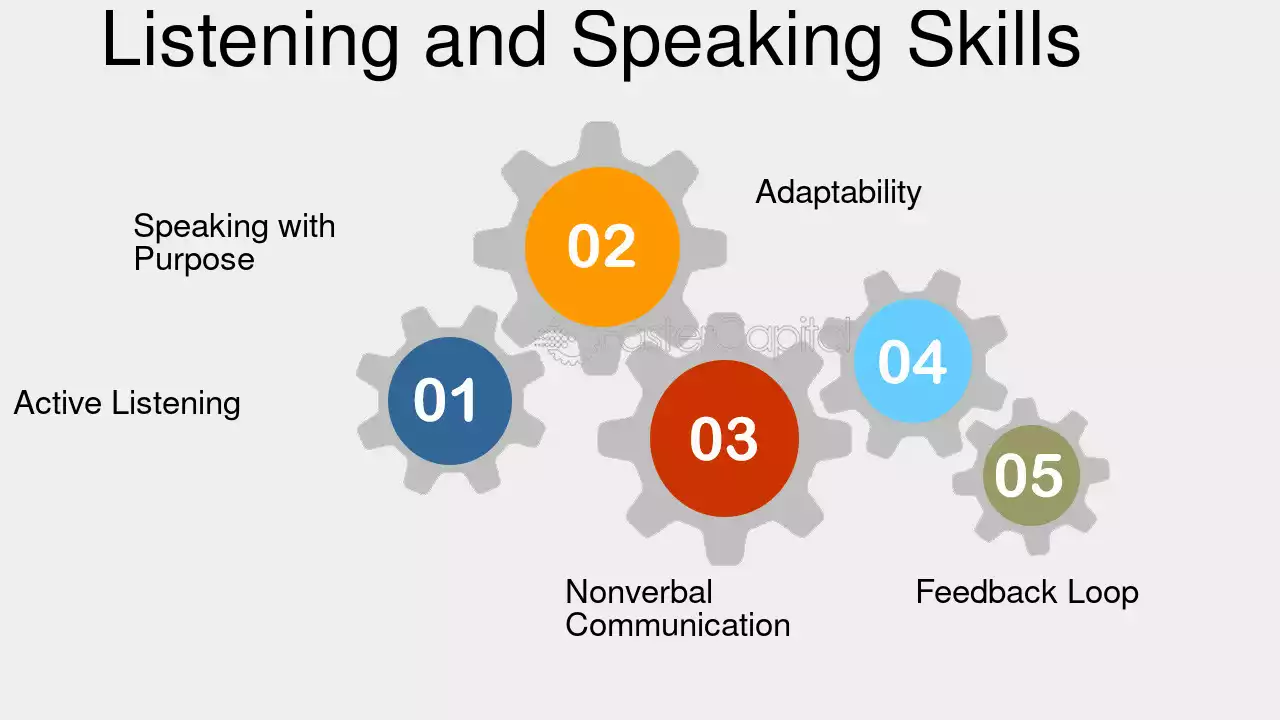
Best Ways to Improve Russian Listening & Speaking:
- Watch Russian movies, TV shows, or YouTube channels – Start with subtitles and gradually transition to listening without them.
- Listen to Russian music and podcasts – Choose slow-paced speech for beginners.
- Use language exchange platforms like Tandem or HelloTalk – Connect with native Russian speakers for real conversations.
- Practice shadowing – Repeat Russian dialogues out loud to improve pronunciation.
💡 Tip: If you struggle with pronunciation, use the Forvo app to hear native speaker pronunciations.
5. Improving Reading and Writing Skills
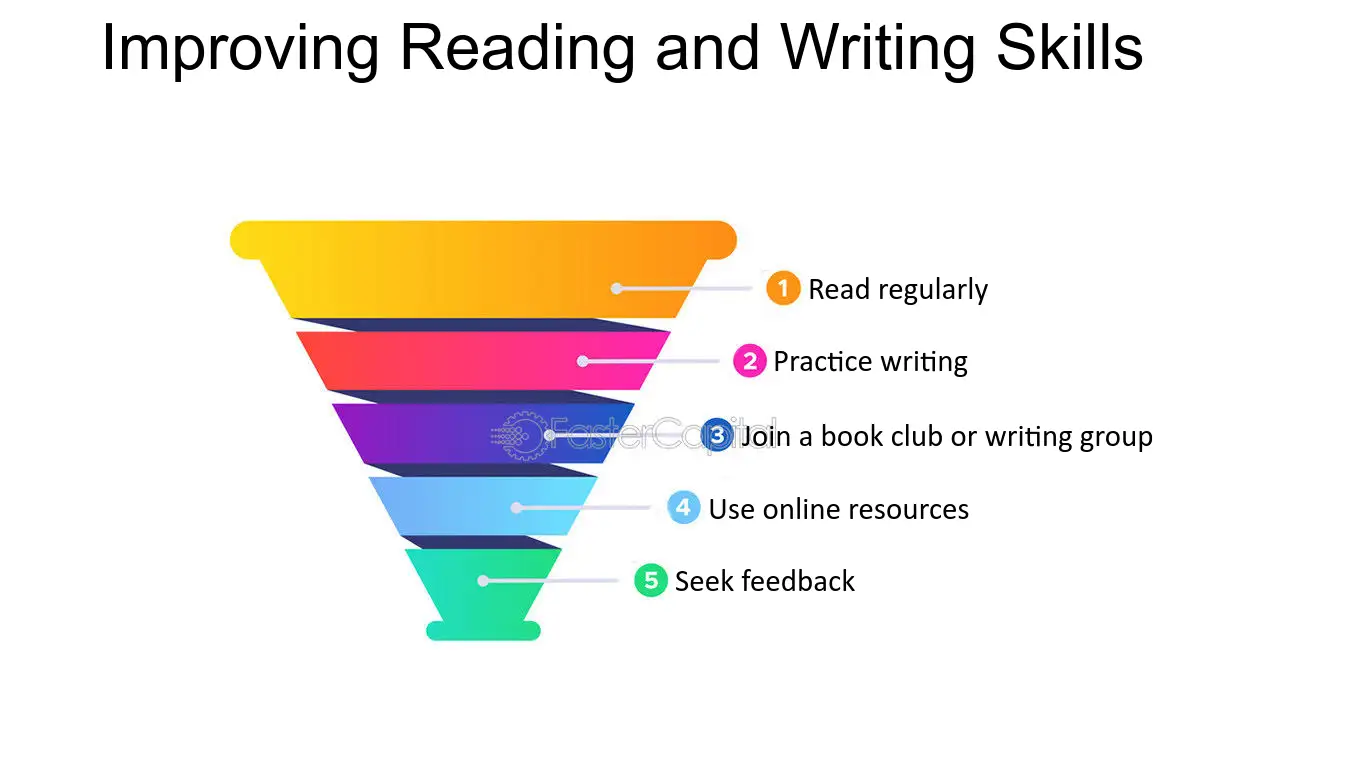
How to Enhance Russian Reading Skills:
- Start with children’s books – They use simple vocabulary and grammar.
- Read short Russian articles or news websites – Websites like BBC Russian offer beginner-friendly content.
- Use parallel texts – Read Russian texts with English translations side by side.
How to Improve Russian Writing Skills:
- Keep a Russian journal – Write about daily activities in simple sentences.
- Practice Russian handwriting – Cursive is commonly used in Russia, so learning to read and write in cursive will be helpful.
- Use language learning forums – Websites like Lang-8 allow native speakers to correct your writing.
6. Using Technology and Language Learning Apps
Learning Russian is easier with modern tools and apps.

Best Apps for Learning Russian:
- Duolingo – Great for beginners to build vocabulary.
- Anki – Flashcards for memorizing words and grammar rules.
- Clozemaster – Helps in understanding Russian in context.
7. Practicing with Native Russian Speakers
Engaging with native speakers accelerates your learning.

Where to Find Russian Language Partners:
- Tandem & HelloTalk – Chat with Russian speakers online.
- Join local Russian language meetups – Check Meetup.com for Russian-speaking groups.
- Hire a Russian tutor – Platforms like iTalki and Preply connect you with professional Russian teachers.
8. Immersing Yourself in the Russian Language
Full immersion is the fastest way to become fluent.
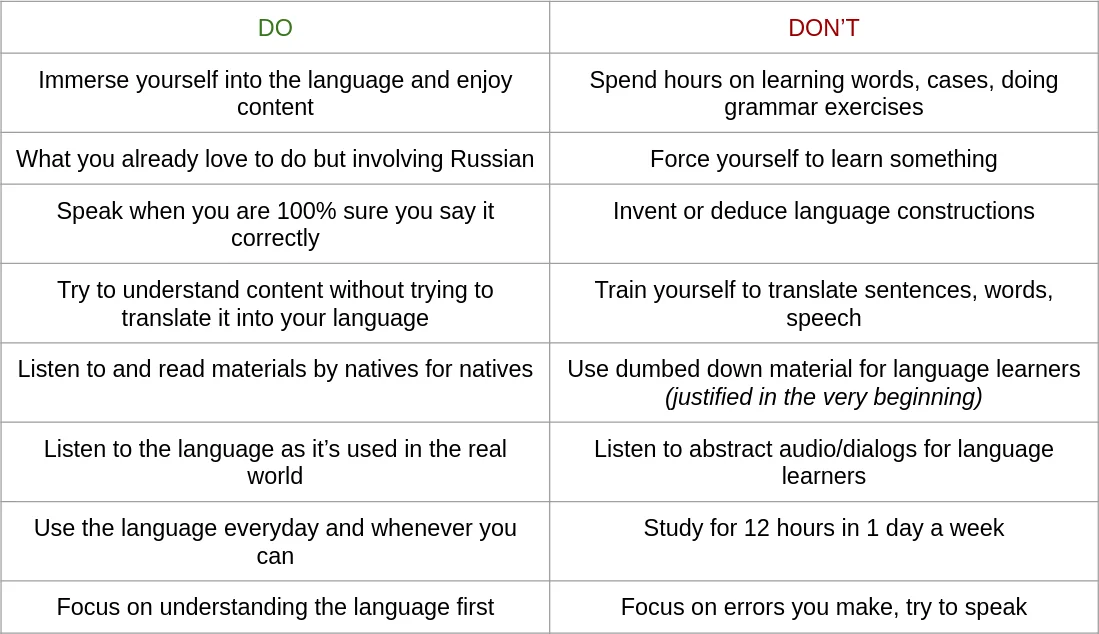
Ways to Immerse Yourself in Russian:
- Change your phone and social media language to Russian.
- Follow Russian influencers and bloggers.
- Think in Russian – Try forming simple thoughts in Russian daily.
- Plan a trip to Russia – If possible, travel to Moscow or St. Petersburg for real-world practice.
Frequently Asked Questions (FAQs)
1. How long does it take to learn Russian fluently?
It depends on your learning intensity. For an English speaker, Russian is classified as a Category IV language (challenging). It takes about 1100 hours of study to reach fluency.
2. Is Russian harder than Spanish or French?
Yes, Russian is more complex due to its cases and grammar rules. However, it becomes easier once you get familiar with patterns.
3. Can I learn Russian in 6 months?
If you study daily using immersive techniques, you can reach a conversational level in 6 months.
4. What is the best way to learn Russian for beginners?
Start with the alphabet, learn basic phrases, practice listening and speaking, and gradually move to reading and writing.
5. Is Russian useful to learn?
Yes! Russian is spoken by over 258 million people worldwide and is essential for business, travel, and cultural understanding.
Related
Conclusion
Learning Russian requires dedication, but with the right approach, anyone can achieve fluency. Start with the Cyrillic alphabet, build essential vocabulary, focus on listening and speaking, and use modern apps to reinforce your skills. Whether your goal is to travel to Russia, engage in business, or simply enjoy Russian literature, mastering this language will open new doors for you.
Begin your Russian learning journey today, and enjoy the process of discovering a rich and fascinating language!


